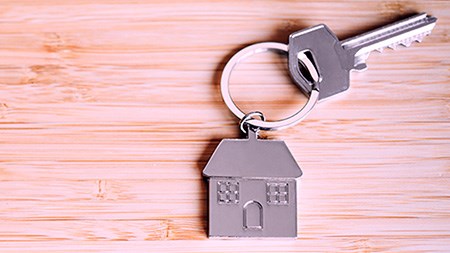If you run your own business, you may find it trickier, rather than easier, to buy a property – and this applies as much to a first-time home buyer as seasoned property investor.
Although your business savvy shows that you’re self-reliant and responsible, the lack of a guaranteed income from a single source can make banks anxious about financing your investment. But this is not to say that getting finance will be impossible. It just means that you will have to deal with more paperwork than employed applicants, and you’ll probably come under closer scrutiny from your bank.
Paperwork
Whether you are a freelancer, contract worker, sole proprietor or small business owner, you'll need to present the following documents with your application.
Comparative financials covering a trading or working period of the latest two years
Letter from your auditor confirming personal income
If your financials are more than six months old, you will need up-to-date signed management accounts
Cash flow forecast for the ensuing 12 months
Personal statement of assets and liabilities
Personal and business bank statements (Absa requires the latest 12 months, the other banks require six)
Latest IT34 , which is confirmation from SARS that your tax affairs are in order
Company, CC or Trust statutory documents
ID documents for all the directors, members or trustees
This is a long and daunting list, but your accountant or bookkeeper should be able to help you out with most of these forms. Depending on the complexity of your application, it may also be useful to provide a short CV, and it is imperative to have your tax affairs and finances in order and up to date. It is also strongly advised that you separate personal and business expenses.
Using the services of an expert bond originator like ooba is extremely helpful. A bond originator will apply to multiple banks on your behalf and present your application in the best possible light. This means that you only have to fill the paperwork out once, and if you are uncertain of anything, you can get advice from experts who know the system – at no extra cost to you.
Boost your chances
To increase your chances of having your loan approved, do the same things that any prospective buyer does to ensure that their financial affairs are in order.
The first thing that a bank will do is run a credit check, so you should do one yourself, before you are actually making an offer on a property and time is of the essence. All South Africans are entitled to run one free credit check a year.
If there are any judgments against your name, it is possible in some cases to rehabilitate your record, so get expert advice on how to do this.
However, your credit record is only a small part of your general creditworthiness, so it’s a good idea to make sure you have a proven history of managing your finances responsibly. It’s a sad truth that you can’t get big credit until you’ve had small credit. So, if you're a first-time buyer, open a couple of accounts with stores and get a credit card, then make purchases and pay what you owe on time and in full every month.”
Obviously, your financial records will show whether you earn enough to afford the property that you want to buy, so it’s a good idea to manage your income and expenses carefully in the months or even years leading up to buying a property. Banks like to see regular, consistent income, and also look for sufficient disposable income or monthly savings.
It’s also useful to get pre-qualified for a home loan – which means that your income, expenditure and credit record has been checked in advance – so that you can make an offer on a property with the confidence that it is within your price range, and that your credit record is clean.
Having a deposit will provide an enormous boost to your bond approval chances, indicating that you are financially responsible and have funds to put towards the property, making the bond a less risky proposition for the bank.



